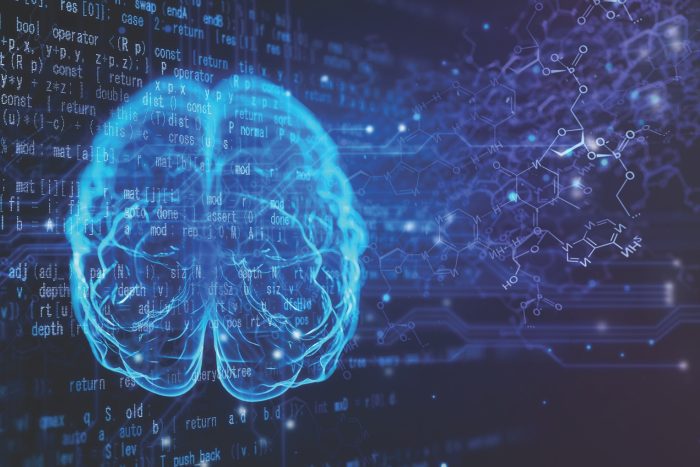Medical Compass: What really works to maintain cognitive health as we age?
Sleeping well can have positive long-term effects
By David Dunaief, M.D.

It’s hard to avoid the flood of advertisements for products — from supplements to “brain games” — that promise to help us avoid cognitive decline as we age. Fear of slowing down cognitively as we age is a big driver of sales, I’m sure.
What do we really know about the brain, though?
We know that head injuries and certain drugs can have negative effects. Many neurological, infectious, and rheumatologic disorders can also have long-term effects. Examples include autoimmune and psychiatric mood disorders, diabetes and heart disease. In these cases, addressing the underlying medical issue is critical.
Lifestyle choices also make a difference. Several studies suggest that we may be able to help our brains function more effectively by making simple lifestyle changes around our sleep and exercise habits. It’s also possible that taking omega-3s can help.
What is brain clutter?
Are 20-somethings more quick-witted than people over 60? It’s a common societal assumption.
German researchers put this to the test. They found that educated older people tend to have a larger mental database of words and phrases to draw upon when responding to a question (1). When this was factored into their simulation analysis, the difference in terms of age-related cognitive decline was negligible.
However, the more you know, the harder it can be to provide a simple answer to a question, leading to slower processing and response times.
Interestingly, a recent study that analyzed trends from three separate studies of brain health and aging found that older adults’ cognition has been increasing over time (2). The author notes that much of this can be attributed to environmental factors, such as education, healthcare and nutrition. Interestingly, younger adults’ cognition has not changed over the same study periods.
Let’s take a closer look at things we can control in our daily lives.
Regulating sleep
Researchers have identified two specific benefits we receive from sleep: clearing the mind and increased productivity.
For the former, a study done in mice shows that sleep may help the brain remove waste, such as beta-amyloid plaques (3). Excessive plaque buildup in the brain may be a sign of Alzheimer’s. When mice were sleeping, the interstitial space (the space between brain structures) increased by as much as 60 percent.
This allowed the lymphatic system, with its cerebrospinal fluid, to clear out plaques, toxins and other waste that had developed during waking hours. With the enlargement of the interstitial space during sleep, waste removal was quicker and more thorough, because cerebrospinal fluid could reach much farther. A similar effect was seen when the mice were anesthetized.
An Australian study showed that sleep deprivation may have contributed to an almost one percent decline in gross domestic product (4). Why? When people don’t get enough sleep, they are not as productive. They tend to be more irritable, and their concentration may be affected. While we may be able to turn on and off sleepiness in the short term, we can’t do this continually.
One study found that sleep deprivation results were comparable to alcohol impairment (5). Subjects’ response time and accuracy with assigned tasks after 17-19 hours without sleep were the same or worse than their performance when they had a blood-alcohol concentration (BAC) of .05 percent. With more than 19 hours of sleeplessness, performance equaled .1 percent BAC.
Exercise’s impact
One study with rats suggests that a lack of exercise can cause unwanted new brain connections. Rats that were not allowed to exercise were found to have rewired neurons around their medulla, the part of the brain involved in breathing and other involuntary activities. This included more sympathetic (excitatory) stimulus that could lead to increased risk of heart disease (6).
Among the rats allowed to exercise regularly, there was no unusual wiring, and sympathetic stimuli remained constant.
An analysis of 98 randomized controlled trials assessing exercise’s cognitive results in older adults, both with and without cognitive impairment, found that a minimum of 52 hours of physical exercise distributed over 25 weeks led to improvements in cognitive function. Physical exercise included aerobic, resistance (strength) training, mind–body exercises, or combinations of these. The authors suggest that, based on the data trends, benefits accumulate over time (7).
Omega-3 fatty acids
The hippocampus is involved in memory and cognitive function. In the Women’s Health Initiative Memory Study of Magnetic Resonance Imaging Study, results showed that postmenopausal women who were in the highest quartile of measured omega-3 fatty acids had significantly greater brain volume and hippocampal volume than those in the lowest quartile (8).
Specifically, the researchers looked at the levels of eicosapentaenoic acid (EPA) and docosahexaenoic acid (DHA) in red blood cell membranes. The source of the omega-3 fatty acids was from either fish or supplementation.
While we have a lot to learn about maintaining brain function as we age, it’s comforting to know that we can positively influence it with lifestyle adjustments, including improving our sleep quality, exercising, and ensuring we consume enough omega-3 fatty acids.
References:
(1) Top Cogn Sci. 2014 Jan;6:5-42. (2) Dev Review. 2024 Mar 19 online. (3) Science. 2013 Oct. 18;342:373-377. (4) Sleep. 2006 Mar.;29:299-305. (5) Occup Environ Med. 2000 Oct;57(10):649-55. (6) J Comp Neurol. 2014 Feb. 15;522:499-513. (7) Neurol Clin Pract. 2018 Jun;8(3):257–265. (8) Neurology. 2014;82:435-442.
Dr. David Dunaief is a speaker, author and local lifestyle medicine physician focusing on the integration of medicine, nutrition, fitness and stress management. For further information, visit www.medicalcompassmd.com or consult your personal physician.







